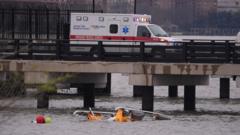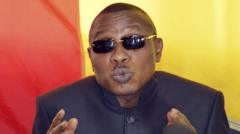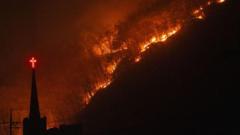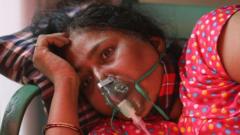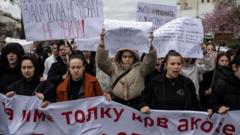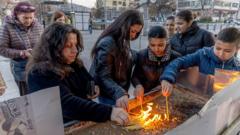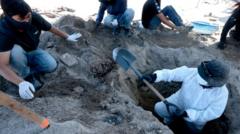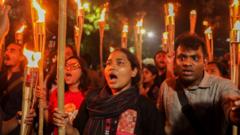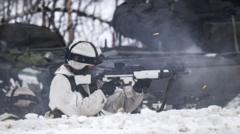In Orebro, Sweden, a devastating school shooting resulted in the deaths of ten victims, predominantly women and immigrants, prompting a national dialogue on gun control and community safety. The shooter, identified as Rickard Andersson, had legally owned four rifles and later took his own life. The attack has instilled fear within immigrant communities, leading to demands for legislative changes to gun procurement.
Tragedy Strikes Orebro: Identifying the Victims of Sweden's Mass Shooting
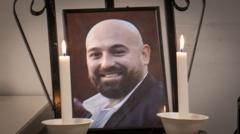
Tragedy Strikes Orebro: Identifying the Victims of Sweden's Mass Shooting
The recent mass shooting in Orebro leaves a community in mourning as ten individuals, mostly immigrants, are identified among the victims, and calls for stricter gun laws rise.
In a heart-wrenching incident that has shaken Sweden to its core, ten individuals were killed during a mass shooting at an adult education center in Orebro, including seven women and three men aged between 28 and 68. The assault, which took place on Tuesday approximately 125 miles from Stockholm, marks one of the deadliest school shootings in the nation’s history.
Authorities have revealed that the victims, who all resided in Orebro, have yet to be officially identified, with most details emerging from families and local communities. Among the known victims is Salim Isker, a 29-year-old Syrian migrant studying at the Risbergska center. He arrived in Sweden in 2015 after escaping violence in his home country. His fiancée, Kareen Elia, attended a memorial held in his honor, emphasizing Isker’s kind nature and dedication to the community. Another victim described by the media is Bassam Al Sheleh, a 48-year-old father studying to enhance his English skills.
The gunman, identified in media reports as 35-year-old Rickard Andersson from the locality, reportedly owned four rifles, three of which were found at the scene alongside ten empty magazines. Following the tragedy, he took his own life. Prime Minister Ulf Kristersson acknowledged the heightened anxiety among immigrants and urged unity among citizens during this challenging time. "You are not alone," he expressed to the bereaved families.
In response to the event, Sweden's coalition government has proposed stricter gun control measures, targeting the increase of vetting processes for firearm purchases and seeking a ban on certain types of weapons. The suggestion to limit the sale of powerful semi-automatic rifles, such as the AR-15, reflects growing concerns regarding public safety.
Current Swedish gun laws allow individuals over 18 to apply for permits for shotguns, handguns, or semi-automatic rifles, provided they have no criminal record. Approximately 580,000 registered gun owners exist in a nation of 10.5 million people. Compared to peers like Norway and the US, Sweden has high rates of gun ownership and escalating gun-related crimes, often linked to gang conflicts; however, non-gang-related incidents are rare.
The Orebro tragedy is prompting critical conversations about gun legislation across Sweden, particularly regarding the safety and wellbeing of immigrant communities, which have expressed increased feelings of vulnerability. The government’s proposed changes to the existing laws may shape the future landscape of firearm ownership in the country.


